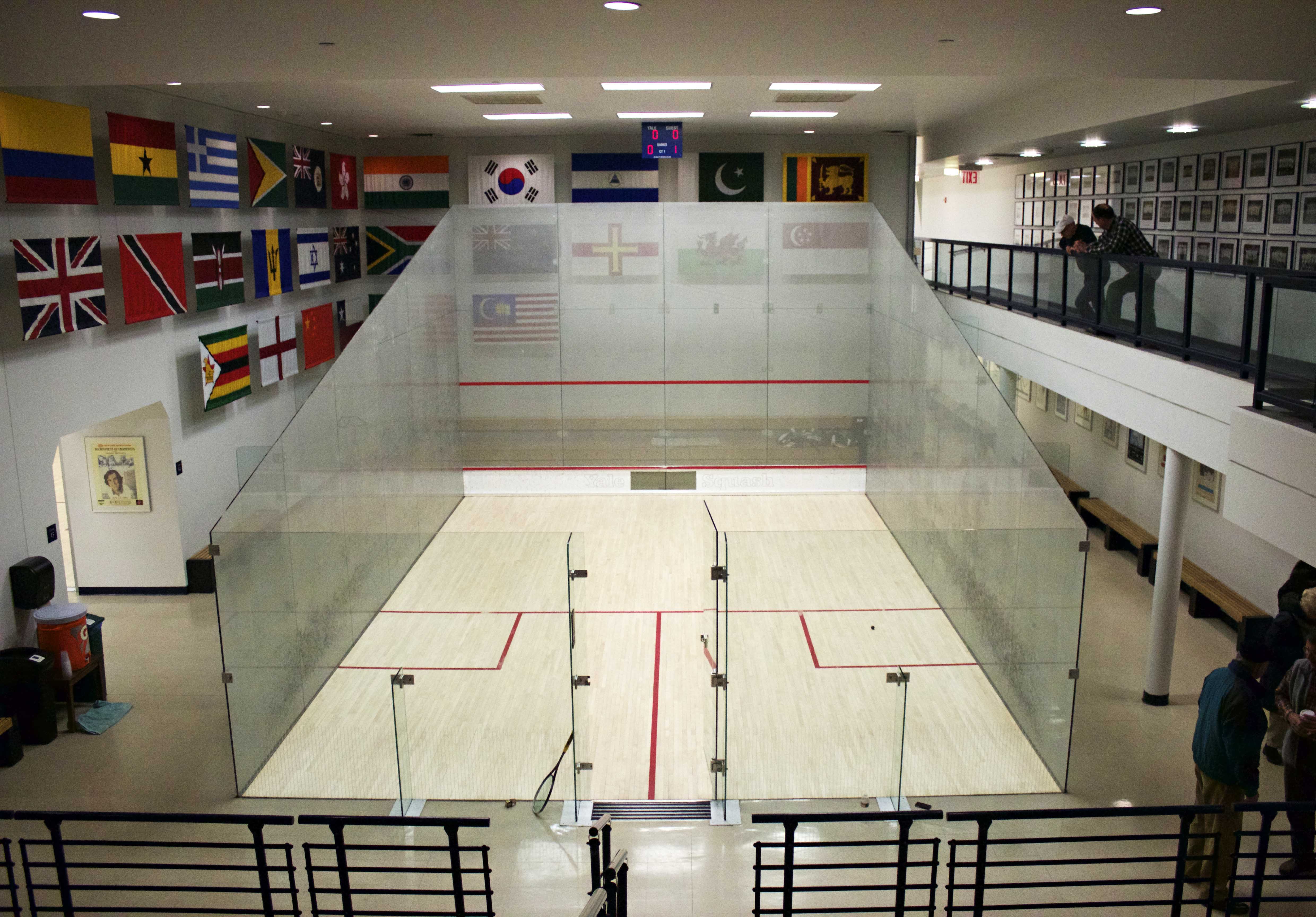
Up until this year, Victor Padilla has come to Payne Whitney Gymnasium as a New Haven student for squash practice and academic tutoring sessions. But starting in the fall, Padilla will walk around the halls of Payne Whitney with a new perspective.
Padilla, who was admitted to Yale in its early action admissions cycle in December, is just one of 21 students admitted to a college in the past three years after participating in Squash Haven, a youth development program with close ties to Yale. Founded in 2006 and based out of Payne Whitney, the program provides tutoring, mentoring and squash training to approximately 100 Elm City students ranging from fifth to 12th grade.
After beginning the program with its first batch of fifth-grade students in 2007–08, Squash Haven will graduate its third cohort of high school students this June. Although the students have since enrolled in various New England colleges, the graduates continue to receive individual support from the Squash Haven community.
“An increasing focus [of ours] is the support we’re providing to kids in college — active and ongoing support,” Squash Haven Executive Director Julie Greenwood said. “We are helping make sure kids don’t just get into college, but graduate with some sense of where they want to go.”
Christi Boscarino-Elligers, who has worked as the director of academics and instructional development for Squash Haven since the program’s second year, said that Squash Haven students face many challenges when first arriving at college, such as encountering cultural differences at predominantly white colleges, being first-generation college students and needing to negotiate financial aid packages.
To help combat those issues, Squash Haven staff members often help students travel to and from their new colleges campuses, navigate appeals for financial aid and find appropriate summer programs between years in college, among other things, Greenwood said.
“After graduating two classes of students, we realize now that getting them [into college] is not even the hard part,” Boscarino-Elligers said.
Right now, the two cohorts of graduated Squash Haven participants attend colleges such as Mt. Holyoke, St. Lawrence, Hamilton and many schools in Connecticut. Of those students, nearly 50 percent are also playing squash at the varsity level, according to Boscarino-Elligers.
Squash Haven has grown each year since 2006, but program administrators plan to keep the number of students at the same level from now on. Boscarino-Elligers said the group has found a “sweet spot” with its seven full-time staff members and around 100 current students, who come to campus for practice and tutoring at least three times per week.
Players from the men’s and women’s squash teams help with squash practice at the Brady Squash Center for at least one hour per week, and other Yale students serve as volunteer tutors in classrooms.
“We are in the second year of a three-year strategic plan,” Greenwood said. “The focus of the plan was a pause from the growing stage, and the theme was strengthening, what are the areas of the program where we need more funding or resources.”
Yet the group now needs more space, Boscarino-Elligers said. The staff currently operates out of one office on the second floor of Payne Whitney, and they have three classrooms in the building, one of which is currently under construction. Although Boscarino-Elligers said she would like to see Squash Haven in a bigger space, even if it meant moving off campus, Yale men’s and women’s squash head coach Dave Talbott highlighted the practicality of having both classes and practices take place in Payne Whitney.
An original co-founder and strong supporter of Squash Haven, Talbott said the students enjoy feeling part of the Yale community. For example, all students have a card with swipe access to the gymnasium.
“It fits the Yale mission extremely well,” Talbott said. “And we didn’t need to build an infrastructure since we have one of the best squash facilities. We are so uniquely partnered with the University that it makes our program unique.”
Sam Chauncey ’57, the other co-founder of Squash Haven and a former Yale administrator, said he and Talbott began the program out of a shared interest for the New Haven community and ways in which Yale could help serve the city. The two squash players were also driven by the idea of linking squash to the students’ education as a whole.
The program receives a “small financial commitment” from the Yale Office of Public Affairs, Talbott said, but most of its $500,000 budget this year came in the form of grant and foundation money and private donations. A large number of those private donations are from Yale alumni who are interested in squash, Chauncey said.
“Squash has historically been a sport for rich people, and we have both liked the idea of getting squash out for the community,” Chauncey said.
Michelle Liu contributed reporting.







